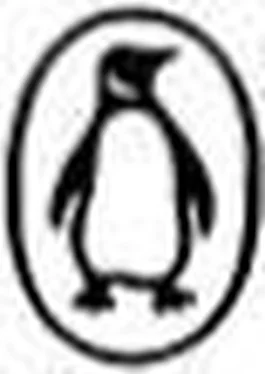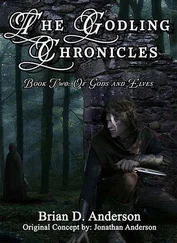Davidson, H. - Gods and Myths of Northern Europe
Здесь есть возможность читать онлайн «Davidson, H. - Gods and Myths of Northern Europe» весь текст электронной книги совершенно бесплатно (целиком полную версию без сокращений). В некоторых случаях можно слушать аудио, скачать через торрент в формате fb2 и присутствует краткое содержание. Жанр: Старинная литература, на английском языке. Описание произведения, (предисловие) а так же отзывы посетителей доступны на портале библиотеки ЛибКат.
- Название:Gods and Myths of Northern Europe
- Автор:
- Жанр:
- Год:неизвестен
- ISBN:нет данных
- Рейтинг книги:5 / 5. Голосов: 1
-
Избранное:Добавить в избранное
- Отзывы:
-
Ваша оценка:
- 100
- 1
- 2
- 3
- 4
- 5
Gods and Myths of Northern Europe: краткое содержание, описание и аннотация
Предлагаем к чтению аннотацию, описание, краткое содержание или предисловие (зависит от того, что написал сам автор книги «Gods and Myths of Northern Europe»). Если вы не нашли необходимую информацию о книге — напишите в комментариях, мы постараемся отыскать её.
Gods and Myths of Northern Europe — читать онлайн бесплатно полную книгу (весь текст) целиком
Ниже представлен текст книги, разбитый по страницам. Система сохранения места последней прочитанной страницы, позволяет с удобством читать онлайн бесплатно книгу «Gods and Myths of Northern Europe», без необходимости каждый раз заново искать на чём Вы остановились. Поставьте закладку, и сможете в любой момент перейти на страницу, на которой закончили чтение.
Интервал:
Закладка:
ERIC BLOODAXE (EIRÍKR BLOðØX): Norwegian king of the tenth century who was driven out of Norway and reigned in Northumbria, where he finally died in battle
EIRÍKS SAGA RAUðA: Saga of Eric the Red, an Icelander who discovered Greenland and settled there in the tenth century. One of the Icelandic family sagas. Also known as þorfinns Saga Karlsefnis (translated by G. Jones, World’s Classics, 1961)
ERIC THE VICTORIOUS (EIRÍKR INN SIGRSÆLI): Famous Swedish king of the tenth century
EIRÍKSMÁL: Tenth-century poem composed at the death of Eric Bloodaxe (translated by N. Kershaw, Anglo-Saxon and Norse Poems , Cambridge University Press, 1922)
ELENE: Old English poem about St Helena, attributed to the poet Cynewulf (translated by R. K. Gordon, Anglo-Saxon Poetry , Everyman, 1927)
ELLI: ‘Old Age’. The old woman who outdid Thor in a wrestling match in the hall of Utgard-Loki
EYRBYGGJA SAGA: One of the longer Icelandic family sagas, the history of the people living at Snæfellsness in western Iceland (translated by Paul Schach, University of Nebraska Press, 1959)
EXODUS: Old English poem about the departure of the Israelites from Egypt (translated by R. K. Gordon, Anglo-Saxon Poetry , Everyman, 1927)
EYVIND KELDA (EYVINDR KELDA): Descendant of Harald Fairhair who worked magic and was drowned by Olaf Tryggvason
FAFNIR (FÁFNIR): Dragon who guarded a golden treasure and was slain by Sigurd the Volsung
FENRIR: The wolf, said to be son of Loki, who was bound by Tyr, and will break free at Ragnarok
FIMBULVETR: The ‘mighty winter’, to last for three years on end, which is to precede Ragnarok
FJǪRGYNN: Mother of Thor, thought to be a fertility goddess. Also found in the masculine form Fjǫrgyn
FLATEYJARBÓK: MS. book containing a version of the sagas of the Norwegian kings, with short episodes interpolated, written in the Flatey monastery, Iceland
FLÓAMANNA SAGA: One of the Icelandic family sagas, telling of an expedition to Greenland from Flói, Iceland
FOMOIRI: Company of supernatural beings in Irish mythology, hostile to the Tuatha Dé Donann
FORNALDAR SǪGUR: ‘Sagas of Old Time’, a series of legendary and heroic sagas, written late, with some romance material but also preserving some early traditions and verses (edited Jónsson, Reykjavik, 1950)
FORSETI: Son of Balder, named as a law-giver among the gods, worshipped in Frisia
FREYFAXI: ‘Mane of Freyr’. Horse of hero of Hrafnskels Saga , dedicated to the god Freyr. Also name of horse in Vatnsdœla Saga
FREYJA: Sister of Freyr, daughter of Njord, a powerful goddess of fertility among the Vanir
FREYR: Son of Njord and one of the Vanir, the chief god of fertility in Norway and Sweden
FRIDLEIF (FRIðLEIFR): Frideuus in Saxo. An early king of Denmark, the son of Frodi III
FRIðÞJÓFS SAGA: Story of the hero Fridiof the Bold, one of the sagas in the Fornaldar Sǫgur (translated by R. B. Anderson, in Viking Tales of the North , Scott (Chicago), 1889)
FRIGG: Wife of Odin and Queen of Asgard, associated with fertility
FRIJA: Wife of Wodan, worshipped by the heathen Germans
FRODI (FROðI): Frotho in Saxo. Name borne by several legendary kings of Denmark, thought to have been the Danish equivalent of Freyr
GARM (GARMR): Hound of the Underworld, who will break loose at Ragnarok and kill Tyr
GAUTREKS SAGA: One of the legendary sagas in the Fornaldar Sǫgur collection, the story of King Gautrek
GEFION (GEFJUN): Goddess worshipped at Leire, who ploughed round Zealand and made it into an island
GEIRROD (GEIRRØðR): Giant hostile to the gods, slain by Thor
GERD (GERðR): Fair maiden of the Underworld, wooed by Freyr
GERMANIA: Account of the way of life, customs, and religions of the German tribes, written by the Roman historian Tacitus in A.D. 98
GILLING (GILLINGR): Giant killed by the dwarfs who made the mead of inspiration
GINNUNGAGAP: Space preceding creation, in which the worlds were made
GÍSLA SAGA: One of the Icelandic family sagas, the story of the outlaw Gisli (translated by George Johnston, University of Toronto Press, 1963)
GJALLARBRÚ: ‘Resounding bridge’, the bridge crossed by Hermod on his way to the realm of Hel to seek Balder
GJALLARHORN: ‘Echoing horn’, horn of Heimdall, to give warning of danger to Asgard
GOðI: Priest of a heathen temple in Iceland, who presided over the local assembly and had his own followers
GOLDMANE (GULLIFAXI): Horse of the giant Hrungnir, which he raced against Sleipnir
GREGORY OF TOURS: Bishop of Tours in the sixth century, author of History of the Franks (translated by O. M. Dalton, Oxford University Press, 1927)
GRENDEL: Monster who attacked the Danish king’s hall, and was slain by Beowulf, as recounted in the Anglo-Saxon poem
GRÍMNISMÁL: Poem in the Edda , the utterance of Grímnir, who is Odin in disguise
GULLINBURSTI: ‘Golden-bristled’. Golden boar made by the dwarfs, owned by Freyr
GUNGNIR: Spear of Odin
GUNNAR HELMING (GUNNARR HELMINGR): Hero of short humorous story inserted into Flateyjarbók , a Norwegian who impersonated the god Freyr in Sweden
GYLFI: Early king of Sweden who let Gefion take Zealand. Appears in the Prose Edda as the questioner of the gods in the section called Gylfaginning (the beguiling of Gylfi)
GYMIR: Father of Gerd, and said to be the same as Aegir
HADDING (HADDINGR): Famous hero in Denmark. Hadingus in Saxo
HADDINGJAR: The Haddings. Pair of brothers sometimes named among early kings of Norway or Sweden, thought to have been twin deities
HAETHCYN (HÆðCYN): Second son of Hrethel, king of the Geats in Beowulf , and slayer of his brother
HAGBARD (HARBARðR): Lover of Signy, put to death by her father. Hagbarthus in Saxo
HAKI: Early king of Norway, sent to sea in a burning ship as he was dying
HÁKONARMÁL: Tenth-century poem by Eyvindr Finnsson on the death of the Norwegian king Hakon the Good (translated by N. Kershaw, Anglo-Saxon and Norse Poems , Cambridge University Press, 1922)
HAKOΝ THE GOOD (HÁKON GÓðI): Christian king of Norway in the tenth century
HALFDAN THE BLACK (HÁLFDAN SVARTI): Early king of Vestfold, Norway in the ninth century
HARALD FAIRHAIR (HARALDR INN HÁRFAGRI): ‘Harald with the fine hair’, the king of Norway who united most of the country under his rule in the ninth century
HARALD WARTOOTH (HARALDR HILDITǪNN): King of Denmark who worshipped Odin
HARðAR SAGA: One of the Icelandic family sagas, the story of Hord the outlaw
HÁVAMÁL: ‘Utterance of the High One’. Poem in the Edda , purporting to be spoken by Odin (translated by D. E. Martin Clarke, Cambridge University Press, 1923)
HAUKSBÓK: One version of Landnámabók , giving an account of the settlement of Iceland
HAUSTLǪNG: Ninth-century poem about the gods, by þjóðólfr ór Hvini
HEIDRUN (HEIDRÚN): Goat which provided mead for Valhalla, fed on the World Tree
HEIMDALLARGALDR: Lost poem about Heimdall, quoted by Snorri
HEIMDALL (HEIMDALLR): God called the White, who kept watch over Asgard
HEIMSKRINGLA: ‘Round world’. History of kings of Norway, compiled from old sagas and poems by Snorri Sturluson (translated by E. Monsen and A. H. Smith, Heffer, 1931)
HEL: Daughter of Loki, given the rule of the kingdom of death, name also used for the kingdom itself
HELGAKVIðA: Lay of Helgi. A number of Helgi lays in the Edda have different titles in various editions. They are concerned with Helgi Hjǫrvarðsson and Helgi Hundingsbani, and, as the latter was linked with the Volsung family, lays about him are sometimes called Vǫlsungakviða and Vǫlsungakviða hin forna (this last contains the episode of Helgi and Sigrun)
Читать дальшеИнтервал:
Закладка:
Похожие книги на «Gods and Myths of Northern Europe»
Представляем Вашему вниманию похожие книги на «Gods and Myths of Northern Europe» списком для выбора. Мы отобрали схожую по названию и смыслу литературу в надежде предоставить читателям больше вариантов отыскать новые, интересные, ещё непрочитанные произведения.
Обсуждение, отзывы о книге «Gods and Myths of Northern Europe» и просто собственные мнения читателей. Оставьте ваши комментарии, напишите, что Вы думаете о произведении, его смысле или главных героях. Укажите что конкретно понравилось, а что нет, и почему Вы так считаете.












